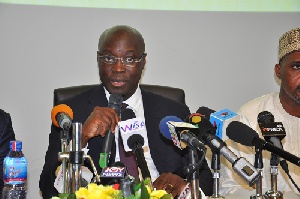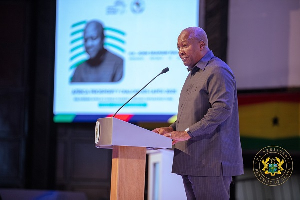Minority in Parliament has described as naive and amateurish government’s approach to revenue mobilization to ensure economic growth, which was done ironically through tax cuts.
Speaking at a round table discussion on Monday, July 16 ahead of the midyear budget review presentation, minority spokesperson on Finance, Cassiel Ato Forson said government’s decision to scrap some taxes in an attempt to generate more revenue is just a populist approach which was not feasible.
“Hence, it was merely fanciful and populist rhetoric to assume that the tax cuts in a recovering global and domestic economic environment would immediately spur or accelerate private sector operations and economic growth.”
He further suggested that Ghana is a developing country; hence, any approach to cut taxes but to continue any act of massive expenditure will hinder economic growth.
“It is unthinkable and naive for any economist to assume that cutting, or worse still eliminating taxes, concurrent with expansion in expenditures, in a small open economy like Ghana, with a developing private sector, would immediately translate into economic growth, and increased tax revenue.”
Cassiel Ato Forson said tax cuts will be insignificantly small to cater for government expenditure.
He added that the structure of the Ghanaian economy is enough indication to every economist to know that a move to cut tax will in no way enhance economic growth.
According to Mr. Forson, not even the increased petroleum revenues from additional crude oil and gas production or recovery in oil prices can save revenue shortfalls.
“In essence, the institutional and structural rigidities of the Ghanaian economy will suggest to any economist that the nexus between tax cuts, economic growth and tax revenue are more likely to be inelastic,” Cassiel Ato Forson said.
He noted that an increase in tax revenue will not be enough to offset the loss in tax revenue resulting from the tax cuts, hence, economic growth and tax revenue response to tax cuts will be insignificantly small, and the effect can be permanent over the medium term.
Casiel Ato Forson said measures taken by government in terms of revenue generation and taxation to stabilize the economy are ‘populist policies’ which has not translated into any meaningful real GDP growth.
He argued that the NPP is rather supervising a real sector economy that has performed below its potential.
This he said is as a result of government’s decision to channel oil revenues into consumption instead of investment.
General News of Monday, 16 July 2018
Source: 3news.com

















